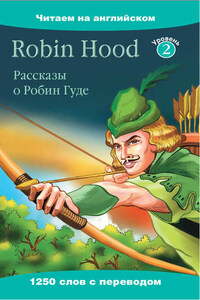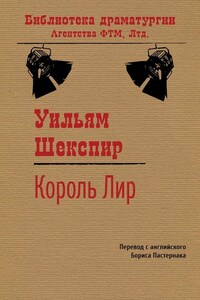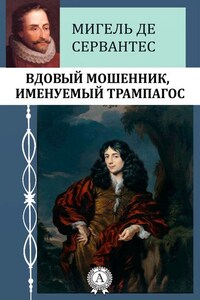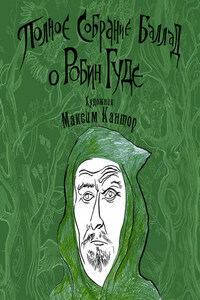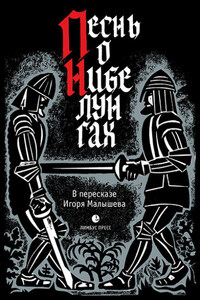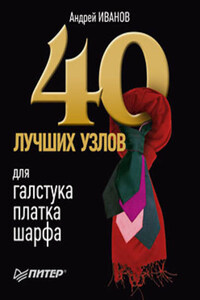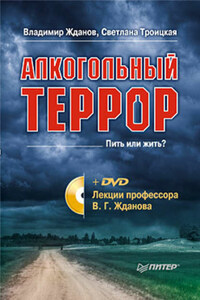Робин Гуд и его последователи жили в Шервудском лесу в Ноттингеме (Англия). Они были великолепными лучниками и носили одежду зеленого цвета, чтобы быть незаметными на фоне листвы. Чаще других в рассказах упоминаются друзья Робина Уилл Скарлет, Маленький Джон и Брат Тук, противники – Шериф Ноттингемский и рыцарь Гай Гисборн, а также возлюбленная Робина – прекрасная Мэриэн.
Несмотря на то, что Робин Гуд был разбойником, простые люди считали его героем, потому что он грабил богатых людей не ради своей собственной наживы, а для того, чтобы помочь бедным.
Существует огромное количество рассказов и стихотворений о Робин Гуде. Наиболее популярные из них вошли в эту книгу.
About eight hundred years ago, England was ruled by Richard, a Saxon king. He was a man so brave, so kind and so generous, that to all his subjects, be they Saxons or Normans, he came to be known as Richard of the Lion Heart.
Under his rule, England was a prosperous country. It was a land of plenty and his subjects were happy. There was work and food for everyone. He was like a father to his nation.
In those days, pious Christians joined the Crusades to spread the word of Christ around the world. King Richard was a very religious man. In 1191 he decided to go for the Crusades. Before he left, he appointed a Regent to rule in his name. He did not trust his brother Prince John, who was not only a cruel man, but had only Norman friends. The Normans hated the Saxons, and King Richard feared than his Saxon subjects would suffer under the Prince.
Prince John was furious with his brother. He had hoped to be chosen the Regent, after which he could have become the king by some means or the other. Now he plotted with his Norman friends to seize the throne. He was determined to become the king.
In the meantime, he amused himself with sports, music and the arts. Jousting was one of his favourite sports. It was a match in which two knights carrying lances and wearing heavy armour would ride towards each other at great speed, each trying to throw the other off his horse. The knight who managed to remain seated on his horse was declared the winner.
One such tournament was arranged in the town square of Nottingham. The cobbled streets of the town were decorated with gaily coloured buntings, fluttering from the tops of the towers and houses. A magnificent royal box had been set up to seat Prince John and his guests. Tiered wooden seats were provided for spectators. Stables had been set up to house the horses of the participating knights. Attendants of the participants carried the banners of their knights, with their emblems displayed in the centre. Their work was to repair the lances or armour of their masters when required.
A very large crowd gathered on the day of the tournament. Most of them were Saxons. Trumpeters heralded the arrival of Prince John, Sir Guy, the Bishop, the Sheriff and other guests, all dressed in silks and velvet. Once they were seated, hasty preparations were made to start the tournament. A horseman in armour rode up and took his position. He was the scorer – the one who recorded the names of the participants, the score of the matches, the wins and defeats. Musicians took their places behind him with their instruments. Their work was to loudly celebrate a win or a brilliant stroke. A trumpeter stood in attention, to trumpet the start of the matches.
A long strip of land at the centre of the town square had been cleared and swept for the match. All eyes were on this area.
The trumpeter heralded the start of the tournament, and the first pair of knights on horseback took up their positions on either side of the jousting area. Then they galloped towards each other at great speed. Their lances clashed with a deafening clang. The crowd went mad with excitement. Prince John and his guests sat on the edge of their chairs, as excited as the rest of the spectators. One knight fell off his horse, the lance having pierced him right through his armour. The victor, a Norman, was congratulated by the Prince.
The tournament continued. Match after match was played and was won by Norman knights. There was great excitement in the royal box. The crowd had become very quiet. Before the final match, a herald announced, “The next match will be between the valiant Norman knight, Sir Guy of Gisbourne and the Saxon knight, Sir Robin of Locksley.”
The two knights, who were wearing helmets with the visors down, held their lances under their arms and galloped towards each other. They met with such terrific force, that their lances broke, but both men remained seated on their horses.
Armed with new lances, the knights again galloped towards each other. This time Sir Robin’s lance hit Sir Guy with such force that he was thrown off his horse.
A loud applause rose from the spectators when Sir Robin was declared the winner. He left his horse in the care of his attendant, Will Scarlet, and walked to the royal box to receive his prize. Lady Marian was the Maid of Honour, who would hand out the prize to the winner.
“Congratulations, Sir Robin,” said the Prince, trying to hide his anger. Sir Guy was his friend and had been hurt. He did not like this at all.
The Prince’s attention was drawn to a messenger who had come into the royal box.
“Sire,” said the man, “King Richard has been taken captive by King Leopold of Austria. I have been instructed to tell you that he will be released on the payment of a ransom of 30,000 gold marcs.”
“King Richard is a prisoner!” Prince John exclaimed.
He hastily called a meeting of the Norman knights and left the royal box with Lady Marian and his Norman friends.
Robin and Will Scarlet received the news with heavy hearts. They were sure that the Prince would not pay the ransom. If the Prince took charge of the affairs of the kingdom, the life of the Saxons would become very difficult indeed.
Robin was right. The Prince and the Normans went out of control. The Saxons were robbed and beaten up and their homes set on fire. Many were thrown into prison without trial. Robin, a Saxon himself, could not tolerate this. He was determined to help them.
One day, Sir Guy was riding through Sherwood Forest, when he saw a deer shot by an arrow. Sir Guy’s men caught the poacher, treated him roughly and dragged him before the knight.
“What is your name, you Saxon dog?” Sir Guy asked angrily. “Don’t you know that it’s death to kill the king’s deer?”
The man stammered, “My name is Much-the-miller’s son. I’d rather die than go hungry. All Saxons go hungry because of Prince John and his men.”
